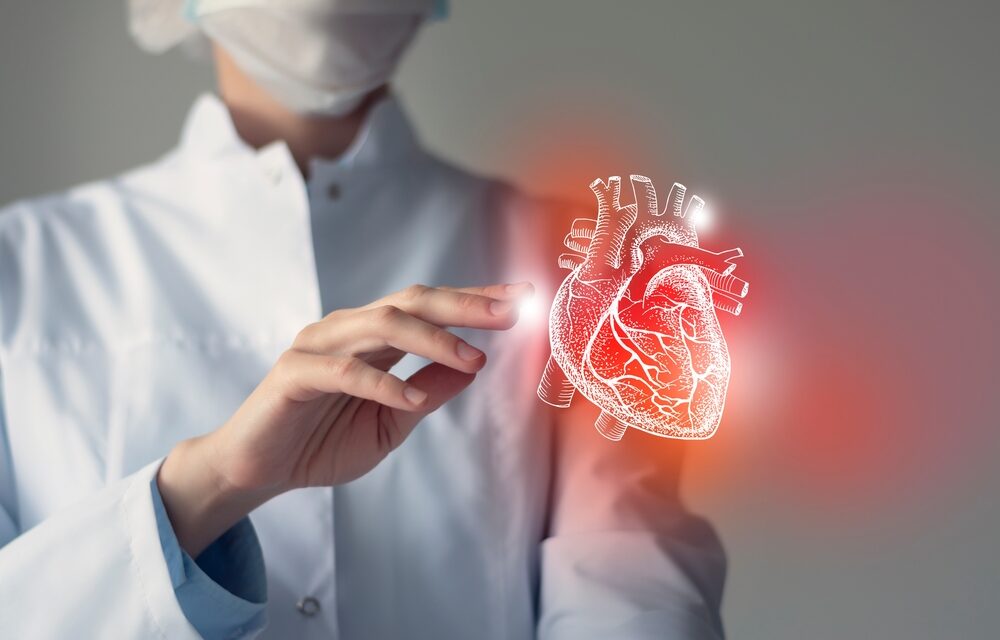Introduction
Cardiovascular system disease is the primary cause of death. Healthy lifestyle choices, such as diet and exercise, may be able to avert one-third of these deaths. While the dietary approaches to prevent hypertension are linked to a lower risk of coronary artery disease, the Mediterranean diet is linked to a lower cardiovascular mortality rate. While exogenous omega-3 fatty acid supplementation does not improve CVD disease outcomes, replacing saturated fat in the diet with polyunsaturated fatty acids is linked to better cardiovascular results. Although lowering dietary salt has not always been associated with a lower risk of CVD disease, there is a correlation between elevated sodium intake and cardiovascular risk. For those needing expert care, visiting the best heart hospital in India can offer advanced treatments and solutions for cardiovascular conditions.
Cardiovascular system disease
Some of the common cardiovascular system diseases include:
- Cardiomyopathy: It is a cardiovascular system disease that affects your myocardium, which is a heart muscle. It makes your heart stiff, enlarged and thick, and it causes scar tissue. As a result, the heart cannot pump blood effectively and sufficiently and supply it to all parts of the body.
- Cardiac arrest: It is an emergency condition where the heart stops beating. As the symptoms begin without any warnings, it is also called sudden cardiac arrest. During this condition, emergency treatments such as CPR (cardiopulmonary resuscitation) and defibrillation are given to save lives.
- Coronary heart disease: It is a cardiovascular system disease that causes blockage of coronary arteries that supply oxygen-rich blood in the body. The symptoms include chest pain, shortness of breath, heart attack and fatigue. It is caused by the formation of plaque in arteries, causing blockage. It is of two types:
- Stable ischemic heart disease: It is a chronic condition where the arteries gradually become narrow and unable to supply blood to the heart.
- Acute coronary heart disease: It is an acute condition where the plaque in the arteries ruptures and leads to blood clots, which are abrupt blockages, leading to heart attack.
- Carotid atherosclerosis: Carotid atherosclerosis, often known as carotid artery stenosis, which is a cardiovascular system disease that is caused when the carotid artery (largest artery) is blocked by a substance called plaque, which is a fatty cholesterol deposit. This blocks the normal blood blow through the carotid arteries, leading to a high risk of stroke. The plaque that is formed is known as atherosclerosis. The signs and symptoms may include:
- Slurred speech
- Loss of vision
- Stroke
- Loss of muscle strength
- Fatigue
- Headache
- High blood pressure
- Peripheral artery disease: Peripheral artery disease is a cardiac condition where plaque is formed in the arteries of your leg. The arteries in the leg carry oxygen and nutrient-rich blood from the heart to the arms and legs. During this condition, the plaque, which is made up of fat, cholesterol and other substances, gradually increases inside your arterial wall, resulting in the narrowing of arteries. The plaque is also known as atherosclerosis. The plaques formed are hard on the outside and soft on the inside. The hard surface cracks or tears allow platelets to come to the area. This also leads to blood clots where the blood cannot get through to nourish organs and other tissues. This causes damage and, eventually, death to the tissues that lie around the blockages.
Impact of exercises on heart
Exercise has many positive effects on heart health. A regular exercise routine helps in many ways, like:
- Lower blood pressure
- Lessen the risk of developing diabetes
- Maintain healthy body weight
- Reduce inflammation throughout the body
- Improve the ability of muscles to pull oxygen out of the blood, reducing the need for the heart to pump more blood to the muscles
- Reduce stress hormones that can put an extra burden on the heart
- Work like a beta blocker to slow the heart rate and lower blood pressure
- Increase high-density lipoprotein and help control triglyceride levels
Cardiovascular risk factors
Cardiovascular risk factors for cardiovascular disease are particular habits, behaviours, circumstances or conditions that increase the risk of developing cardiovascular disease, including lack of exercise, unhealthy eating, smoking, diabetes, age and family history. Cardiovascular risk factors can be classified into two types:
- Modifiable: Modifiable cardiovascular disease risk factors are those that can be reduced or controlled with altered behaviour.
- Non-modifiable cardiovascular disease: These are those that cannot be reduced or controlled.
Other cardiovascular risk factors include:
- Age and sex: The risk of heart attack is higher in adults of age more than 45, and men have a higher chance of getting a heart attack than women.
- Family history of heart conditions: Genetical conditions matter, and children may get a heart attack if their parents are at risk.
- Lifestyle: Lifestyle choices not good for the heart and overall health increase the risk of heart attacks. For example, drinking too much alcohol, smoking and drug consumption.
Cardiovascular disease cause
Some of the common cardiovascular disease causes include:
- Consuming excessive alcohol and tobacco
- Consuming excessive caffeine
- Obesity
- Sleep apnoea
- Autoimmune disease like rheumatoid arthritis
- Environmental factors
- Drugs and medications
Cardiovascular disease prevention
Some of the steps involved in cardiovascular disease prevention are as follows:
- Eat healthy foods like food high in saturated and trans fats
- Eat foods high in fibre and low in saturated fats
- Limit salt or sodium in the diet
- Limit sugar and sugar-related foods
- Avoid drinking alcohol
- Keep a healthy weight
- Do physical exercise regularly
- Do not smoke
Conclusion
To conclude, regular physical exercise and eating a balanced diet help keep your heart healthy. It plays a vital role in overall health and prevents many heart conditions and diseases. For expert care and treatment, Fortis, the best hospital in India, offers state-of-the-art services for heart health. So always be active and have a healthy diet.





